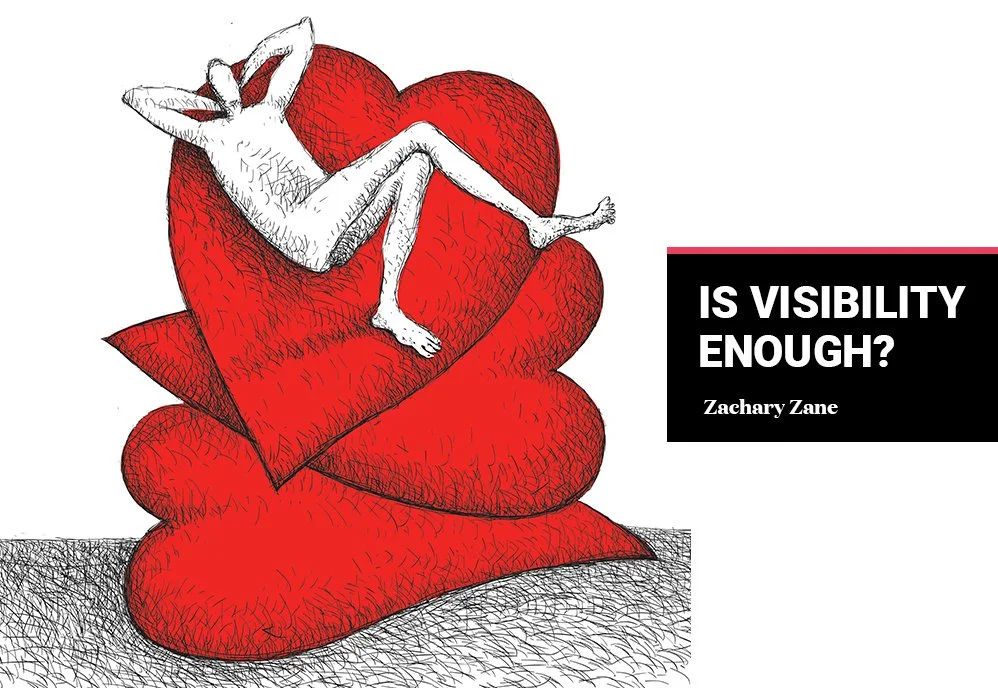Is Visibility Enough?
A few years ago, I was frustrated by the responses I was receiving for being beautifully bi, and I needed to let it all out. I decided to write a piece for the now defunct XoJane about how I struggled with dating both straight and gay people because of my sexuality, and the article sort of blew up. Other sites cross-posted the article, and in the end, it had something like 25,000 shares across platforms. After the piece went viral, I received dozens of emails from readers thanking me for writing it, which made me realize just how much my voice could help other people. I enjoyed that feeling so much that I decided to keep doing it.
Since then, I have struggled with whether or not to call myself an activist. At times, I include it in my bio and on my website, but on other occasions I simply label myself a writer and speaker. True, sharing my personal story and experiences related to sexuality may help people realize that they are not alone or weird, but I do not think this automatically qualifies me as an activist. Although being visible is often an important first step in creating change, in order for it to be activism it must be combined with something more substantial. Especially in today’s social media-obsessed environment where everything revolves around being seen, it is important to remember that actions still speak louder than words or images.
By now, nearly everyone has encountered instances of visibility presented as activism. Those perfectly framed pictures of conventionally attractive men with chiseled abs and bulging biceps, with captions like: “The gay community really struggles with body image issues. It’s important you love and embrace all of your body — flaws and all,” are mostly about superficial visibility. Sure, they can throw in some vague message of self-love, but when a person looks that flawless it is hard to imagine their image really spreading feelings of body positivity. Particularly when I see these same gay men getting free bottle service in the hottest clubs in New York City simply because they are attractive, and never engaging with the rest of the gay community they claim to represent, I find it difficult to consider their visibility as activism.
Before I go further, let me clarify — I love thirst-trappers on Instagram. I, myself, am a proud one (shameless plug: follow me here). Posting a half-naked photo with a faux-supportive caption devoid of any true meaning does not make you an activist, though. It just makes you visible. To be an activist, one has to do more than just chase likes and amass large social media followings. One has to actually get out there and act to address whatever circumstances they want to change. That is why it is called activism, after all.
What about when visibility itself is a change?
On many occasions, change starts with raising awareness. You cannot advocate for something if no one is aware of the issue. Visibility can be an important step in this process. The reason I started writing about my sexuality, for example, was not that I had this desire to become a “bisexual mega-influencer” (that just happened on its own!). It was simply that being visible through my writing was the only way I knew to raise awareness. I wanted to make my experiences of bisexuality more visible so that other people with similar experiences would feel validated and seen. (Let’s be real, my thirst traps on Insta are just to gain followers and feel like a hot bitch.) I could not effectively argue that biphobia was a real problem without showing how it has manifested and affected my life and others’.
Still, I think that even this form of visibility should be coupled with other efforts to pursue change whenever possible. A few years ago, my writings on bisexuality led to an invitation from the White House to participate in a briefing on issues relevant to improving equality for bi people in the country. While there, we spoke about many important issues including mental and physical health concerns and the need for bisexual spaces. I left feeling empowered to continue my work, because it made me see that it had value beyond mere visibility, and that through my writing and social presence I could influence real change.
Since that visit, I have continued to use my platform to do exactly that. I am currently the ambassador for #WeNeedAButton, for example, which is a campaign designed to get proper healthcare to queer people. When I write articles, speak on podcasts, and moderate panels, I also promote sex-positivity, which would, if widely embraced, increase self-esteem, allow for a healthier dialogue around sex and love, lead to happier relationships, and positively affect the lives of sex workers. I do these things now not only by talking about myself, but also by focusing on other peoples’ experiences and explaining why it matters. Of course, I also continue to raise awareness around experiences of bisexuality.
For these reasons I have finally concluded that I am, indeed, an activist. Not because I am more visible now than I was before, but because my work to promote change has not stopped at visibility. There is no denying that being visible is important, especially when it sheds light on something that was previously underrepresented. But, sharing my own story and being visible are not enough to call myself an activist. It is a start, but it is not the be-all and end-all of activism. Still, I know that I would not have been able to become the activist I am today if I did not start with my own visibility. It’s a starting point, not a destination.
Published Jan 1, 2020
Updated Jul 4, 2023
Published in Issue IV: Activism










